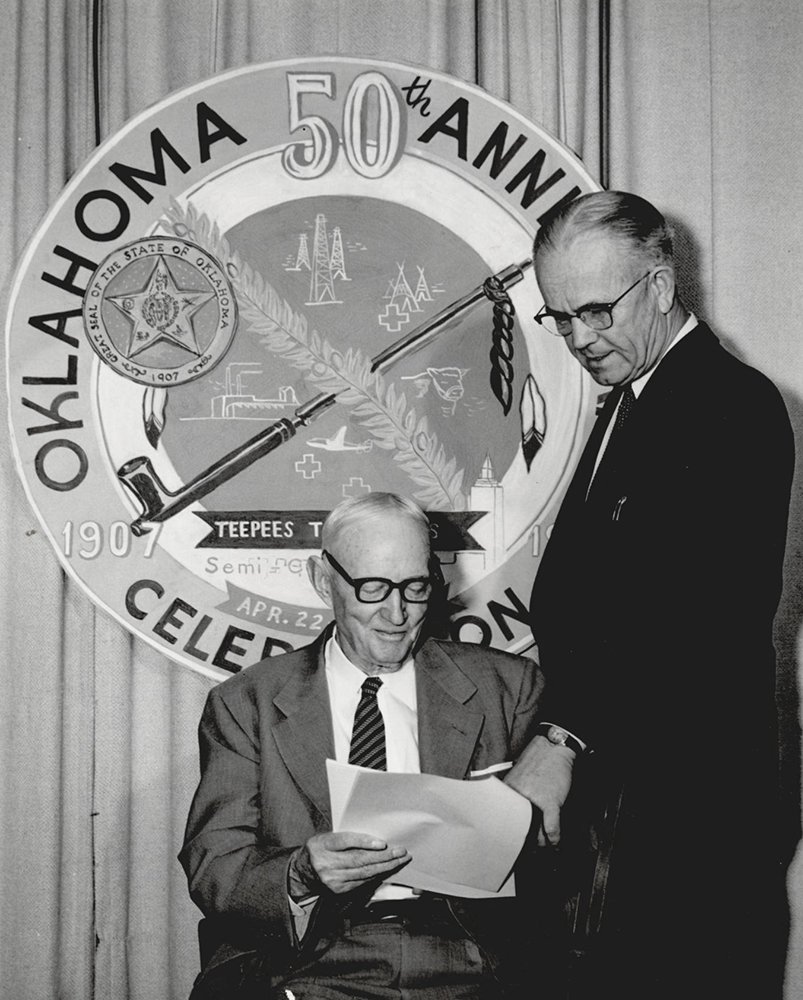
The Encyclopedia of Oklahoma History and Culture
DALE, EDWARD EVERETT (1879–1972).
Born on February 8, 1879, near Keller, Texas, to John Franklin and Mattie Counts Dale, Edward Everett Dale, Oklahoma's premier historian, grew up in north Texas and as a young man began his working life in Old Greer County. There he labored as a cowboy, a teacher, and a superintendent of a country school. He graduated from Central State Teachers College in Edmond, Oklahoma, in 1909 and then received a bachelor's degree from the University of Oklahoma in 1911, a master's degree from Harvard University in 1914, and a Ph.D. from Harvard in 1922. His dissertation, "A History of the Range Cattle Industry in Oklahoma," was directed by Frederick Jackson Turner. While still a student, Dale married Rosalie Gilkey in 1919.
After graduating from Harvard, E. E. Dale joined the University of Oklahoma as professor of history and as chair of the department, a position he held from 1924 to 1942. In that capacity he trained many of Oklahoma's and the nation's best scholars, including Angie Debo. Dale helped establish and was a lifelong supporter of the Western History Collections at the university. He held a seat on the Oklahoma Historical Society Board of Directors from 1930 to 1972 and twice served as president of the Agricultural Historical Society and the Mississippi Valley Historical Association.
As a writer Dale focused on western and Oklahoma history. His many books include The Range Cattle Industry (1930), Cow Country (1942), History of Oklahoma (1948), and Indians of the Southwest (1948). Many of his works remain classics. His service to the history profession included membership on the Meriam Commission, whose job was to survey all Indian reservations, and he co-wrote, with Lewis Meriam, The Problem of Indian Administration (1928). Also a poet and storywriter, he published a book of stories, Tales of the Tepee (1920), and a book of verses, The Prairie Schooner and Other Poems (1929).
Retirement from the university faculty in 1952 did little to dim Dale's passion for history. Remaining in Oklahoma, he continued to devote his life to publishing, researching, teaching, and collecting the state's history. Autobiographical works include The Cross Timbers, Memories of a North Texas Boyhood (1966) and The West Wind Blows (posthumously, 1984). He was inducted into the Oklahoma Historians Hall of Fame in 1994. E. E. Dale died on May 28, 1972, and was interred in Norman.
See Also
ANGIE ELBERTHA DEBO, OKLAHOMA HISTORICAL SOCIETY, STANLEY VESTAL, WESTERN HISTORY COLLECTIONS






